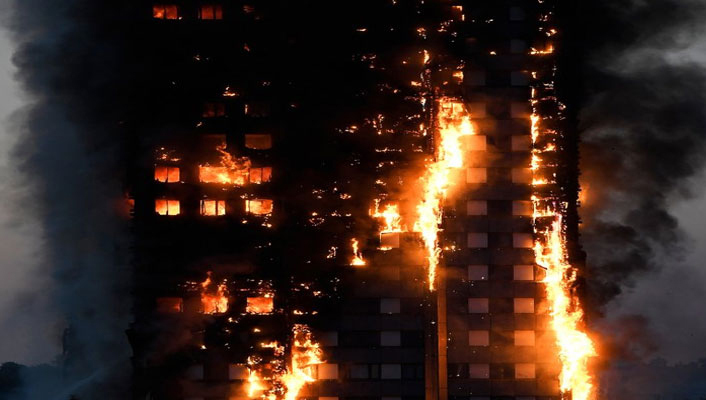No need to restrict ‘terms of reference’ for the Grenfell Inquiry, says Hillsborough QC
There was no need to restrict ‘terms of reference’ for the Grenfell Inquiry, according to the lawyer who represented 22 of the bereaved Hillsborough families at the recent inquests. Writing for the Justice Gap today, Pete Weatherby QC of Garden Court North argues that the scope of the inquiry should have been left open ‘at least until everyone could have a say, with proper advice, in public’. Sophie Caseley reports.
‘It is an irony of this inquiry that one important issue is why safety fears, raised by residents long before the fire, were ignored,’ Weatherby writes. ‘One of the answers is likely to be that legal aid cuts meant that they could not access proper advice.’ You read Pete Weatherby QC’s article HERE.
Sir Martin Moore-Bick formally opened the inquiry into the fire at Grenfell Tower on Thursday last week (see HERE).
The inquiry will have two ‘phases’. The first phase will deal with the immediate causes of the fire, including how it started, and how it was able to spread so quickly. There will also be an assessment of the response of the emergency services and the evacuation of residents. The aim is for this report to be produced by Easter 2018. This phase of the report has been given priority given that the recommendations would need to be implemented for other tower block buildings suffering from the same defects.
The second phase will explore the broader causes and effects of the fire. The design and construction of the building from its inception in the 1970s, and the issue of whether there was compliance with building regulations throughout will be investigated. Importantly, the responses of the Tenancy Management Organization and Kensington and Chelsea Borough Council to residents’ concerns as to fire safety at Grenfell Tower will be scrutinized. This is likely to be a controversial area, given the allegations that residents were ignored on multiple occasions despite their concerns. See Sophie Barnes’s article for the Justice Gap (Never Again: Learning the lessons of Grenfell).
Announcing what an inquiry will not cover, announcing who will not be an assessor, and the chair walking out of the opening session when a lawyer for survivors tries to say something, suggests that the Grenfell Inquiry has got off to the worst possible start.
Pete Weatherby QC
There is disagreement about how the inquiry should proceed. The decision not to allow any members of the community directly affected by the fire to sit as assessors on the panel has proved to be a divisive issue. The reason given by Sir Moore-Bick is that it may risk undermining the impartiality of the inquiry.
A judicial review was lodged by BMELawyers4Grenfell (and subsequently refused), challenging the inquiry’s failure to appoint an ethnically diverse panel of advisors as well as the inquiry’s limited terms of reference – as reported on LegalVoice.
Justice4Grenfell and the legal charity INQUEST, amongst others, have recommended that the terms of inquiry address broader economic and social policy issues, including the historical context of this disaster (see HERE).
It therefore remains to be seen whether the community and other local residents affected will gain any, or more, confidence in the inquiry as it progresses. The inquiry is necessarily constrained any findings on criminal or civil liability, but Sir Martin Moore-Bick has said in his opening statement:
‘I shall therefore not shrink from making any findings or recommendations that are justified by the evidence simply because someone else may at a later date consider that they form the basis of civil or criminal liability. The police are, of course, conducting their own investigation into possible criminal offences.’
You can read that statement HERE.






